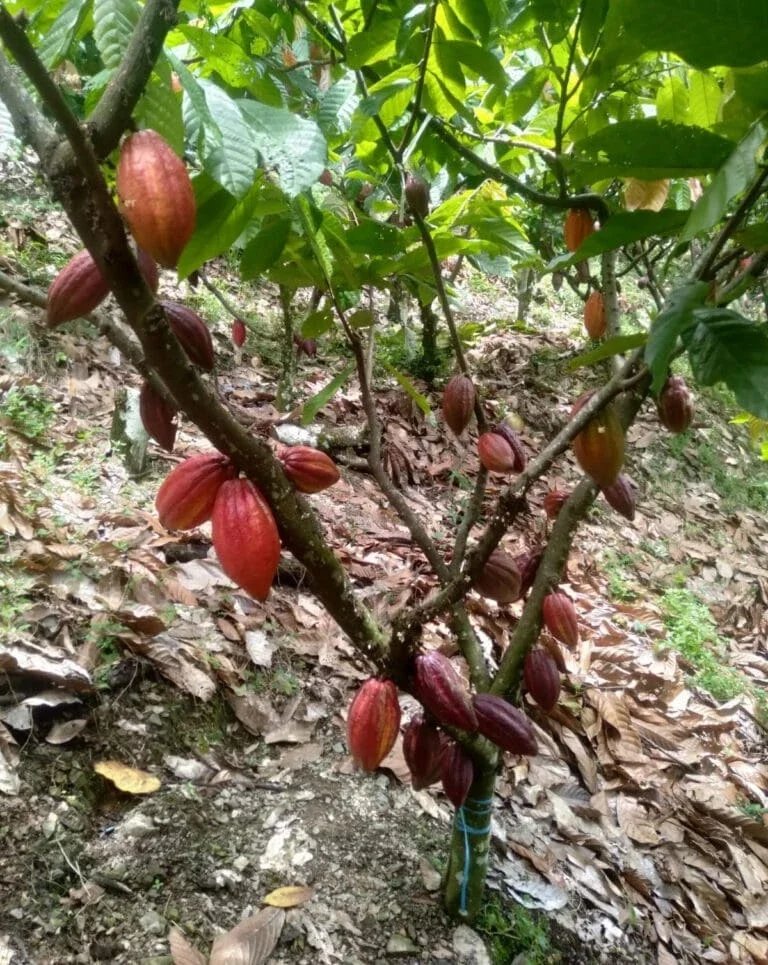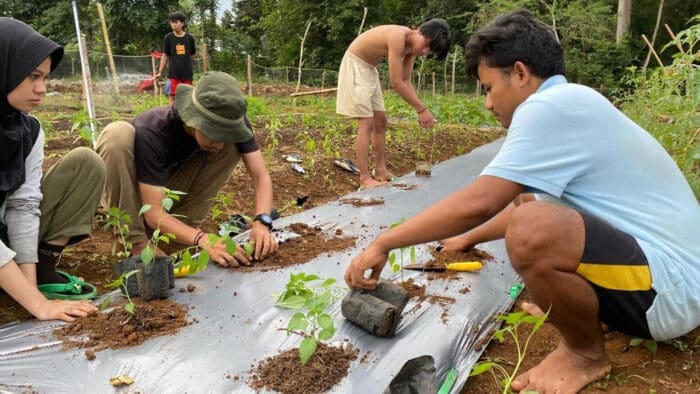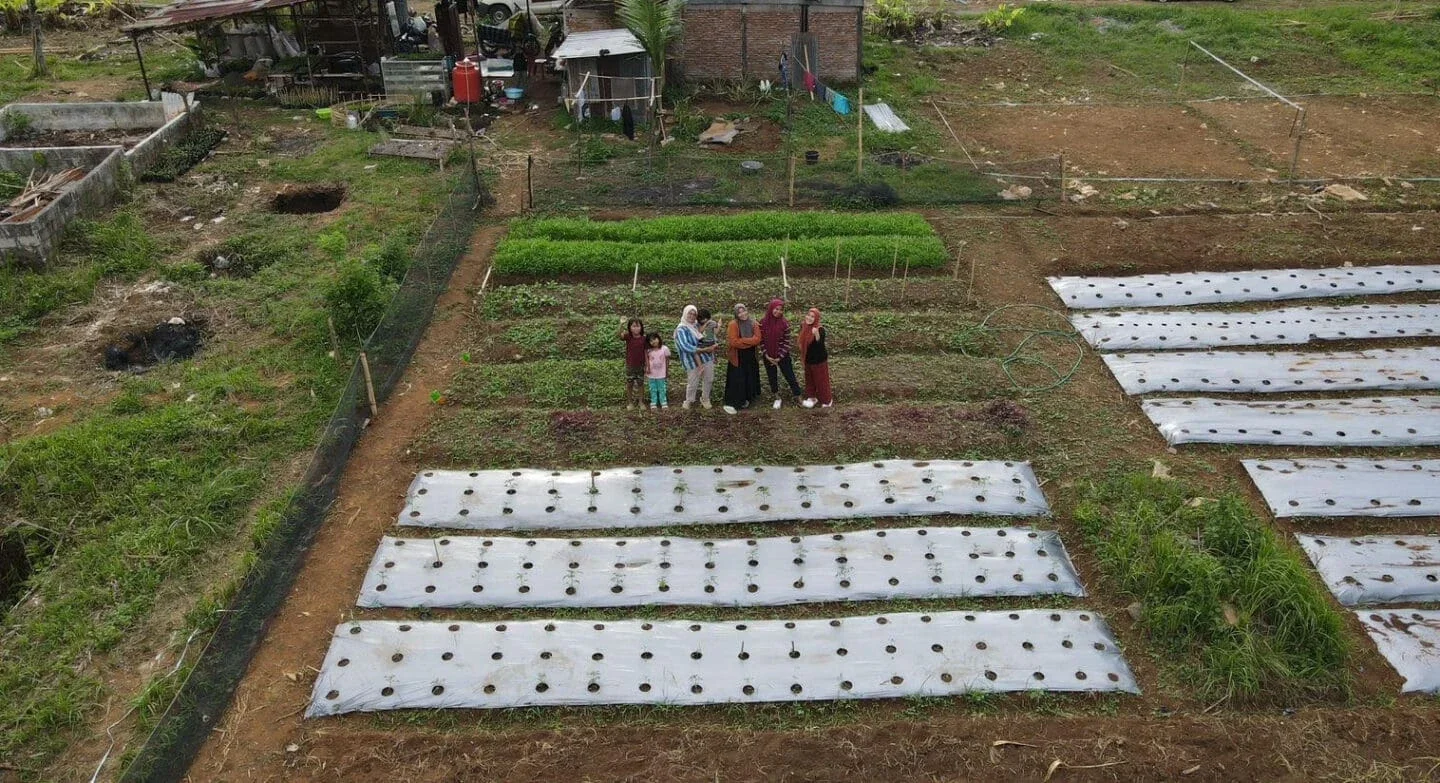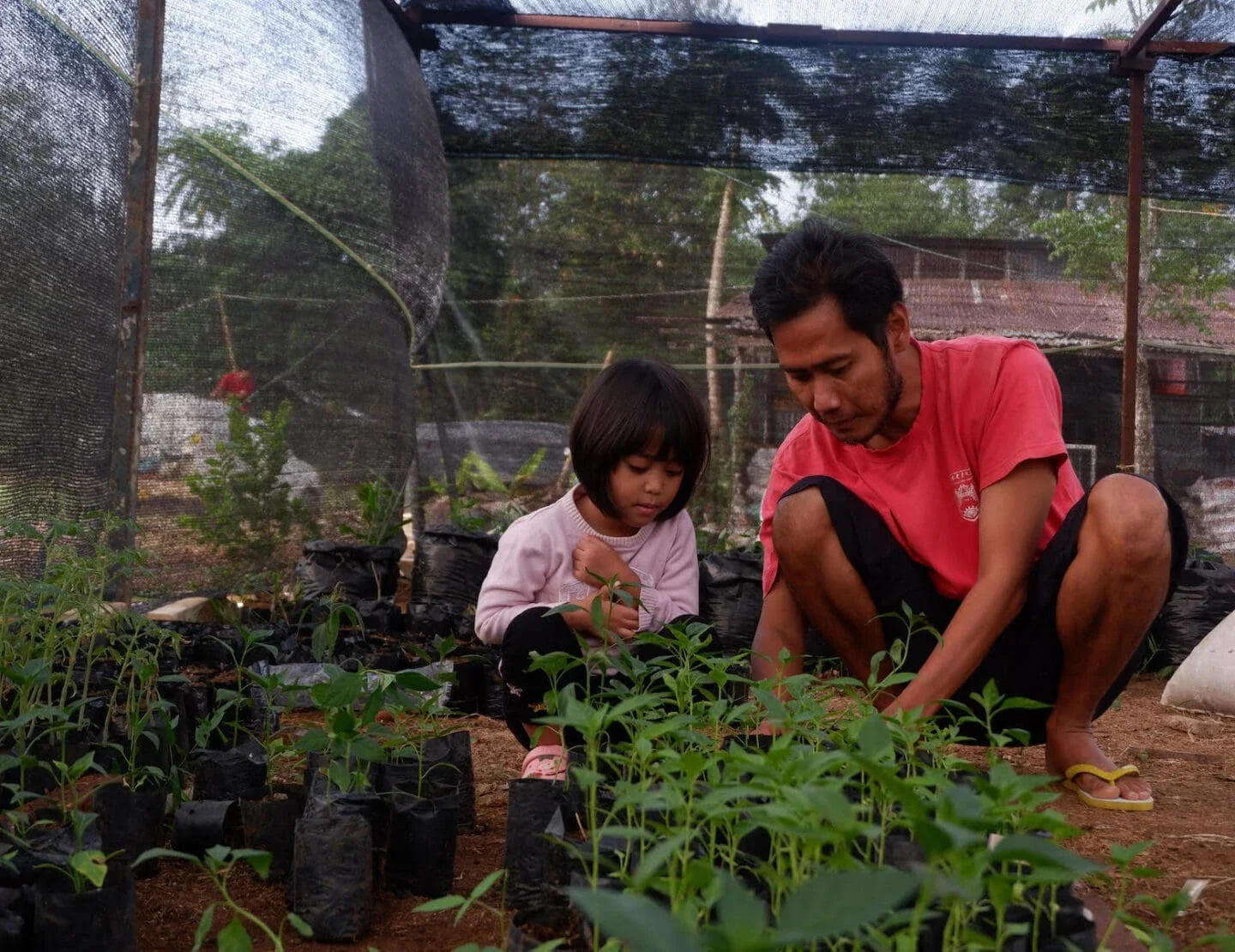Batiran is nevertheless laser-focused on helping farmers adapt to a shifting climate through community organizing and education.
“Farmers are the main group affected by climate change. They are the most vulnerable, and lose more than any others group,” Batiran said. “But farming is a pillar of life. City people cannot grow their own food. If farming keeps declining and declining, we will not be able to eat anymore.”
Sulawesi Farmers Note Climate Change Impacts
Indonesia is the globe’s third largest producer of cocoa, and for now, most of it comes from Sulawesi.
Sulawesi, dubbed the orchid-shaped island, is the world’s 11th largest. Its cave paintings were created as long as 43,900 years ago.
South Sulawesi, where Batiran lives in the largest city of Makassar, is home to more than 8.5 million people. Much of the population outside of Makassar is engaged in agriculture.
Some 83 percent of farmers surveyed for a recent study noted that climate change is hurting their livelihoods by triggering hotter temperatures, longer dry seasons, and irregular weather patterns that lead to elevated plant diseases.
Batiran, who earned a Master’s Degree in rural development, is a project coordinator for the Farmer People’s School Payo-Payo, a collective learning center for farmers.

Payo-payo means scarecrow in the local Mandar language and symbolizes the importance of farmers taking the lead on identifying resilience techniques for their crops.
In 2015, the group began bringing volunteers to live in farming communities for four months at a time, to help farm, learn, and support solutions-thinking. And about 18 months ago, it set up a youth learning farm.
“Not only do we have a declining number of farmers, but it is an aging sector,” Batiran said. “Some 70 or 80 percent of our farmers are between the ages of 45 and 65. That’s why it’s important to get youth involved. We want to get them excited. And there are some young people still interested.”

Farming for Healing As Well as Food
Climate change has played a critical role in encouraging an exodus from farming. “The most common complaint farmers have is that before, they could predict the weather seasonally,” Batiran said.
“Now, that ability is lost. And the droughts are a big problem. Just today, we bought water for our learning farm today because it is dry. As a child, I would never have imagined that.”
Another issue is that some farming families no longer own their land, having had to sell it to survive. “We want to make farming possible even for those who don’t have land, so we are introducing them to practices like hydroponic and aquaponic farming.”
Now 42, he takes his own three children frequently to the learning farm. “I bring them anytime possible so that they can get early exposure to the land and plants.”
One reason for this is that he feels farming is restorative on a personal level. “For me, farming is therapy,” he said. “Cities are compact and squished physically and mentally. We need farms for food—and we also need them for healing.”
More from this series
India: A Forest Dweller Fights for Indigenous Rights to Traditional Lands
An Indigenous Woman Fights for Her Community: “For others, a forest is just trees. For us, it is life.”
READ MOREBuilding Bridges for Collective Climate Resilience
A six-part series that highlights frontline community voices from those whose lives are being transformed by a changing climate.
READ MORE
